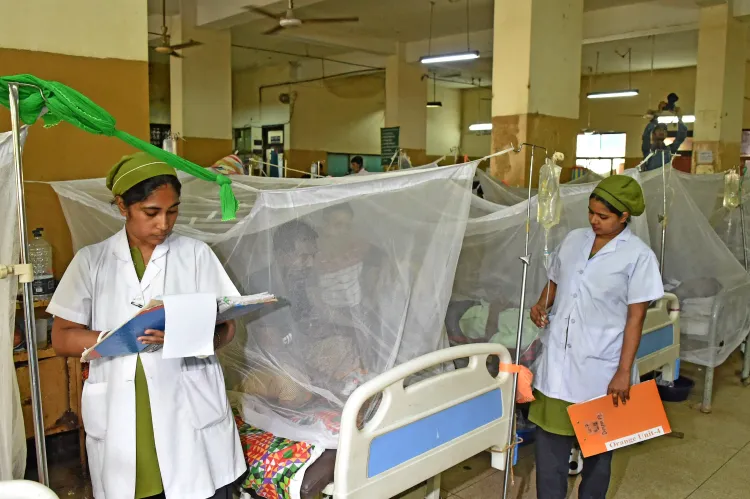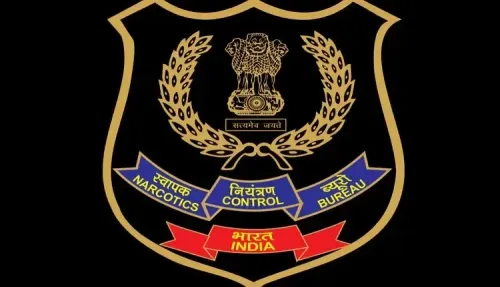How Many Fatalities from Dengue Have Been Reported in Bangladesh?

Synopsis
Key Takeaways
- Four new dengue-related deaths reported in Bangladesh.
- Death toll rises to 192 in 2025.
- A total of 46,051 dengue cases reported.
- Hospitals mandated to set up dedicated wards for dengue patients.
- Coordination with local authorities for mosquito eradication drives.
Dhaka, Sep 28 (NationPress) Four additional fatalities have been confirmed in Bangladesh due to dengue as of Sunday, raising the total number of deaths from this mosquito-borne illness in the country for 2025 to 192, according to reports.
During this timeframe, 845 more individuals were hospitalized with viral fever, resulting in a cumulative total of 46,051 infected patients in 2025, as stated by the Directorate General of Health Services (DGHS), United News of Bangladesh reported.
The DGHS reported new dengue cases in various divisions: Barishal Division (166), Dhaka Division (164), Dhaka South City Corporation (112), Khulna Division (101), Dhaka North City Corporation (97), Chattogram Division (91), Rajshahi Division (54), Mymensingh Division (37), Rangpur Division (17), and Sylhet Division (6).
In total, 575 individuals lost their lives to dengue in Bangladesh in 2024, while in 2023, a staggering 1,705 people died, marking it as the deadliest year on record. The DGHS documented 321,179 dengue cases and 318,749 recoveries in that same year.
On September 16, new instructions were issued by the DGHS for public hospitals to enhance the treatment of dengue patients. As per the new guidelines, all hospitals in Bangladesh are mandated to establish dedicated wards for dengue care and assemble a specialized medical team, local media reported.
This initiative is expected to improve patient care, reduce risks, and enhance the overall quality of hospital services, according to local media. The directive was issued by DGHS Director (Hospitals and Clinics) Abu Hossain Md Mainul Ahsan.
Hospitals have been instructed to provide special provisions for dengue patients receiving treatment, including facilities for NS-1 tests, emergency care, and adequate medication for patients, as reported by the Dhaka Tribune.
Dengue patients in hospitals should be accommodated in designated wards or rooms, with ICU support prioritized as necessary. Additionally, special responsibilities have been assigned to doctors and nurses.
The directive emphasized the formation of a board consisting of specialists in medicine, pediatrics, and other relevant fields for the treatment of dengue and chikungunya patients. Under this board's supervision, trained doctors, medical officers, and residents will cater to the needs of dengue and chikungunya patients.
Furthermore, the same board and doctors must also provide care for suspected patients visiting outpatient departments. Hospital directors have been instructed to communicate with city corporations or municipalities to implement mosquito eradication and cleanliness initiatives around hospital areas. A weekly dengue coordination meeting is to be held at hospitals, presided over by the director, superintendent, and civil surgeon every Saturday.










